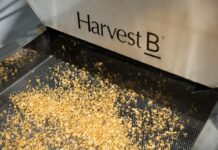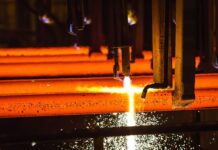
Victoria is one step closer to locally manufacturing mRNA vaccines and medicines, with the construction of Moderna’s mRNA vaccine manufacturing facility reaching the halfway mark, progressing faster than originally planned.
The new facility, the first of its kind in the Southern Hemisphere, is on track to be completed in 2024, with the capacity to produce 100 million vaccine doses annually for respiratory diseases, including influenza, Respiratory Syncytial Virus (RSV), and COVID-19.
The construction phase has generated up to 500 jobs, and an additional 500 advanced manufacturing jobs will be created once the facility becomes operational.
This development is part of Moderna’s strategic investment in Australia, which also includes the recent opening of Moderna’s Regional Research Centre for Respiratory Medicines and Tropical Disease and its headquarters for Australia, New Zealand, South-East Asia, and Oceania, all located in Victoria.
In particular, Moderna has partnered with Victoria’s leading medical research institutes and clinical trial networks, enabling Victorians to participate in trials for new mRNA medicines across various health conditions.
Minister for Industry and Innovation Ben Carroll said the recent announcement represents an important milestone in Victoria’s collaboration with the Commonwealth Government and Moderna as they work to establish Australia’s mRNA industry, manufacture vaccines locally, generate employment, and change lives for the next several decades.
“Moderna’s mRNA Vaccine Manufacturing Facility making its home in Victoria sends a strong signal to the world that we are global leaders in mRNA research and development. The facility is currently Australia’s largest advanced manufacturing project,” the minister remarked.
Meanwhile, Moderna Australia & New Zealand General Manager, Michael Azrak, expressed his excitement about the facility’s progress.
“This milestone underscores Moderna’s unwavering commitment to providing Australians with timely access to pandemic response capabilities and the vital capacity to manufacture groundbreaking mRNA vaccines for seasonal respiratory and emerging viruses,” Azrak noted.
The Andrews Labor Government has played a crucial role in this endeavour by investing $12.3 million in the development of mRNA technology, building on a $1.3 billion investment in medical research since 2014.
According to the government, Victoria currently accounts for nearly 60 per cent of Australia’s pharmaceutical exports, making it the highest-value advanced manufacturing export in the country.
The biotech sector in Victoria supports over 100,000 full-time jobs.



















